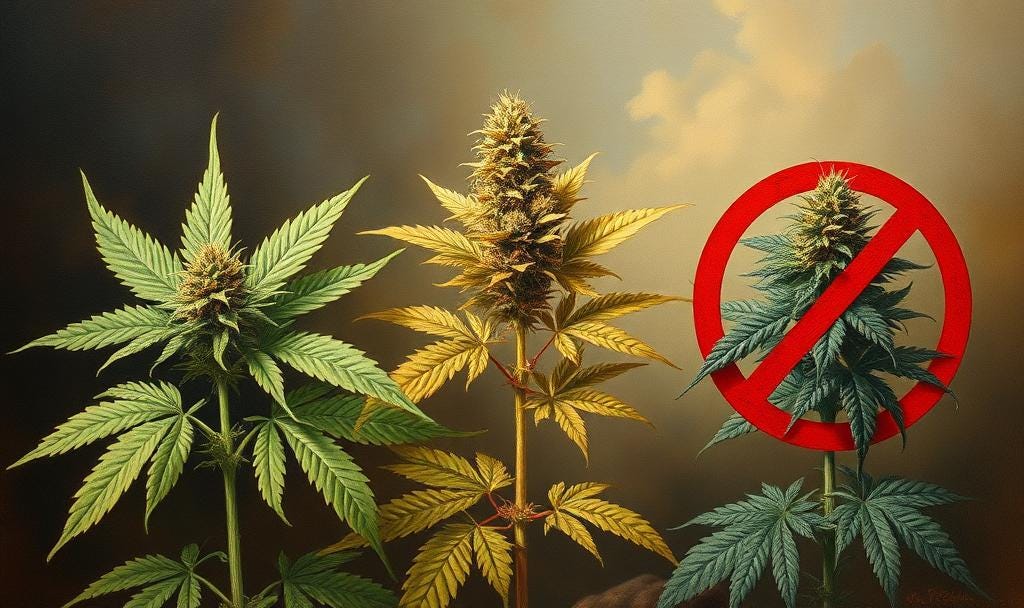
I am old enough to remember when there was no "medicinal cannabis" or "recreational cannabis." There was just marijuana, and if you were caught with it by police, chances were good that you would be arrested and have to enter a plea on a criminal charge.
That is my foundation for understanding the strategies employed by reformers to move public opinion and change laws. As long as we have criminalized the possession of certain drugs, we have been waging a war on those who would choose to use them. "Just Say No!" was a powerful catch-all phrase in support of blind criminalization. If you just said no(thing), you did not have to worry.
In the late 1990's I had to fight for the chance to study the marijuana policy reform movement. The chair of my department refused to sign off on my doctoral dissertation proposal, after having tried to remove me from the graduate program with only my dissertation to complete. I had to represent myself to the university attorney, who understood my plea as a matter of academic freedom, thankfully. After I submitted my dissertation and had nothing left but a defense I was going to surely pass, he called me into his office and told me that there was no hope for me to find a job, after specializing in marijuana policy.
The struggle to legalize marijuana took a turn in the early 1990's, when people started to refer to marijuana as "medicine." One can tell another "Don't use drugs," but no one is permitted to tell a sick person, "Don't use medicine." And with that, the entire discourse changed.
But legalization, to me, is about everyone, equally. I do not consider it "cynical" to have advocated on behalf of medicinal marijuana as a step along the path to total legalization, where no criminal penalties are attached to the cultivation, distribution, possession, or consumption of cannabis causing no harm to others.
That is why I opposed Americans for Safe Access's original position on legalization; namely, that it should be legal for patients, and patients, alone. Now that we have medicinal cannabinoid (THC and/or CBD) laws of some sort in 44 states, and THC legalization in two dozen states (including some of the largest), I can say the medicinal strategy has come close to running its course, and attention should be directed toward legalization for all adults (with medicinal laws to allow for consumption by patients under 21).
Inevitably, medicinal policies skew from legalization policies, which creates separate-and-unequal means of obtaining and consuming cannabis. While needed to end the Drug War against marijuana users as we knew it, a medicinal-first advocacy works against us moving forward to the total legalization that is called for.
It is disheartening to see friends in cannabis place one category of citizen ahead of all others in their advocacy. It smacks of Jim Crow, to me. We did the work needed to flip the public substantially in favor of medicinal, and now we have a majority in favor of some form of legalization, but we still have 26 states to go When we have general legalization, patients will have all the access they need, and those who do not suffer from horrible qualifying conditions are not treated any differently, as citizens.
The Drug War was a backlash against civil rights gains, and without reestablishing the civil rights lost, we cannot solve the problems caused by the Drug War. That does not come from privileging one, small group of persons, over the whole.





What about getting it approved as a 'vaccine'? Then anyone could say they are taking their booster.
https://lionessofjudah.substack.com/p/welcome-to-the-madness-inhalable